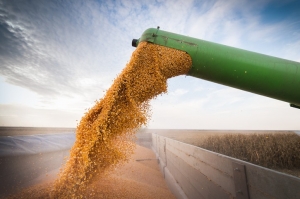


(Posted on 22/05/20)
Cargill is working with nonprofit and NGO partners around the globe to help address food security, health and safety needs and agriculture and industry challenges to ease the impact of COVID-19. The company has committed $35 million to date for COVID-19 relief and recovery efforts through partnerships, aid funds, product donations and employee giving. In addition to monetary contributions, Cargill has donated more than 3 million pounds of food to food shelves and hunger relief efforts. The response is guided by a commitment towards nourishing the world in a safe, responsible and sustainable way.
“We are humbled to work alongside the people whose tireless efforts every day keep food on our tables,” said Jon Nash, president of Cargill Protein – North America. “Cargill is focused on supporting employees and local communities – especially those most impacted by food insecurity during this pandemic. We are working with producers to keep the agriculture economy moving and to feed Canadian communities. Our employees as well as our producer partners have our deep gratitude.”
Cargill has partnered with the Canadian Cattleman’s Foundation at the founder’s level to support Canadian producers. Additionally, the company has made contributions to organizations providing emergency support to Canadians including to Food Banks Canada, Second Harvest Canada and Breakfast Clubs Canada.
Local Cargill Protein teams have also helped to provide more than two million meals for Canadians through our food bank partners across the country. In Quebec, Cargill donated 20,000 kg of ground beef to Tables de Chefs’ “Les Cuisines Solidaires” project. The project aims to mobilize the food industry and chefs of Quebec to produce more than 800,000 meals for people in need during and after the COVID-19 crisis. The meals are being prepped in commercial kitchens across the province and delivered to food banks and agencies that are part of Food Banks Quebec.
Cargill is committed to putting people first, and continues to keep its facilities operating anywhere it is safe to do so according to health and workplace authorities. This ensures a reliable market for producers and delivers the essential service of putting food on family tables.
The National Grain and Feed Association (NGFA) has applauded Senator Deb. Fischer’s (R-Neb.) reintroduction... Read more
Anglo American plc and Teck Resources Limited have received regulatory approval from the Government... Read more
The Rhodes Ridge Joint Venture has approved a $191 million (A$294 million) (Rio Tinto share $96 million... Read more
Trafigura Group Pte Ltd, a global leader in the commodities industry, has announced its financial results... Read more
Rio Tinto has successfully produced the first copper from the Johnson Camp mine in Arizona using its... Read more
The American Soybean Association’s World Initiative for Soy in Human Health programme and the... Read more
Karlka Nyiyaparli Aboriginal Corporation (KNAC) Registered Native Title Body Corporate and Rio Tinto... Read more
OCI Global, a leading global producer and distributor of nitrogen products has announced that it has... Read more
In December 2024, SSAB was granted a permit by the Land and Environment Court at Umeå District... Read more
The President of the Republic of Guinea has joined project partners WCS1, Baowu, Chinalco and Rio Tinto... Read more